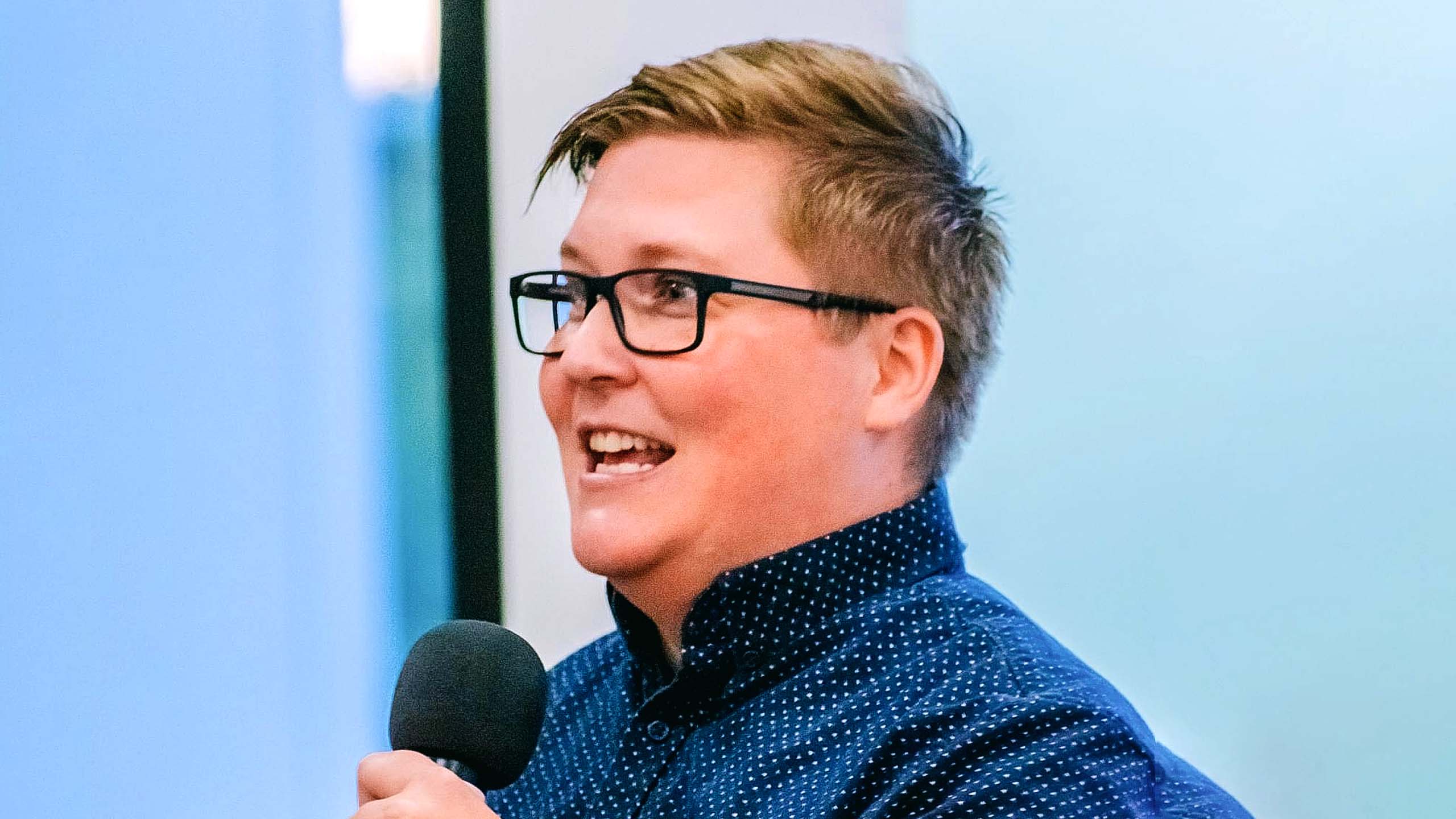Hope, relief and a sense of belonging: queer kids felt all this and more after Teri Westerby won a school board seat in Chilliwack, British Columbia, last week, becoming the first openly trans man ever to be elected to a school board in Canada.
“On Instagram, kids were reaching out and saying, ‘Thank you for being there for me, because now people can see that I’m normal,’” Westerby tells Xtra over the phone. “Parents, too, are saying that their son, their daughter, are now feeling safe to go to school. It’s been so touching.”
Westerby has been enjoying an outpouring of support since he won the seat on October 15. Out of 15 candidates, Westerby came in fifth with 7,584 votes, becoming one of seven school board members on a majority progressive board.
“I was so happy,” Westerby says about finding out that he had won. “My friend’s son, who’s trans himself, burst into tears out of relief that his life’s going to get better. That caused us all to cry because that’s why we’re doing this. I’m welling up just talking about it.”
Westerby hadn’t been running in an ordinary school board race. The newly elected school board member ran against at least three candidates who pushed against LGBTQ2S+-inclusive education. Candidate Heather Maahs called to ban All Boys Aren’t Blue, a memoir by queer writer George M. Johnson. Richard Procee was backed by ParentsVoice, a political organization criticizing government “initiatives around hot-button issues such as sex, race and schools’ response to COVID-19.”
Westerby also ran against Barry Neufeld, a longtime school board trustee who published a screed on social media criticizing the provincial government’s Sexual Orientation and Gender Identity (SOGI) program, which gives educators inclusive resources to discuss sexuality and gender with students.
“At the risk of being labelled a bigoted homophobe, I have to say that I support traditional family values,” he said of the SOGI program in a 2017 Facebook post, as originally reported by The Chilliwack Progress news outlet. “But now the B.C. Ministry of Education has embraced the LGBTQ2S+ lobby and is forcing this biologically absurd theory on children in our schools.”
Neufeld ended up coming in 12th, losing the school board election, while Maahs and Procee also won seats. Still, the board has a 5-2 progressive majority, and Westerby sees his election to the board as a sign that his community is ready to move past anti-LGBTQ2S+ rhetoric.
“Chilliwack was making the news—internationally—for all the wrong reasons, and I’m excited for the city to make the news for the right reasons,” Westerby says. “I hear so loud and clear that people want to move forward.”
Westerby was initially hesitant to run for a school board seat, saying that he was worried about “making waves for the gay and trans community.” He referenced the hate that Dr. Carin Bondar, a biologist and author who also went on to win a school board seat, had received over a parody video in which she used Miley Cyrus’s “Wrecking Ball” to teach students about biology. An opposing candidate accused her of being a “striptease artist.”
“I was terrified that the community’s reaction [to my running] was going to actually hurt the LGBTQ2S+ community,” Westerby said.
Still, Westerby says that the struggles of LGBTQ2S+ kids he saw during his work with the Gender Support Network, an organization supporting trans and gender-diverse people, compelled him to run.
“I started hearing from students that they couldn’t participate in P.E., that they didn’t use the washroom because it wasn’t safe for them—or, that when they did use it, they were followed and harassed,” Westerby says. “There were all these things that were happening that were actually unconstitutional because there were no safe policies in schools. So that’s what inspired me to run.”
Now that he’s won, Westerby wants to make sure he listens to the community to see “what kinds of policies we need to initiate right away to start making things better.”
“I know we’re struggling with funding because we’ve grown so much,” he says. “A lot of our students don’t have access to their classrooms, playgrounds or to field trips. A big part of it, too, is also changing our culture to attract more teachers and retain some of the amazing staff we already have because staffing is a huge issue for us.”


 Why you can trust Xtra
Why you can trust Xtra


